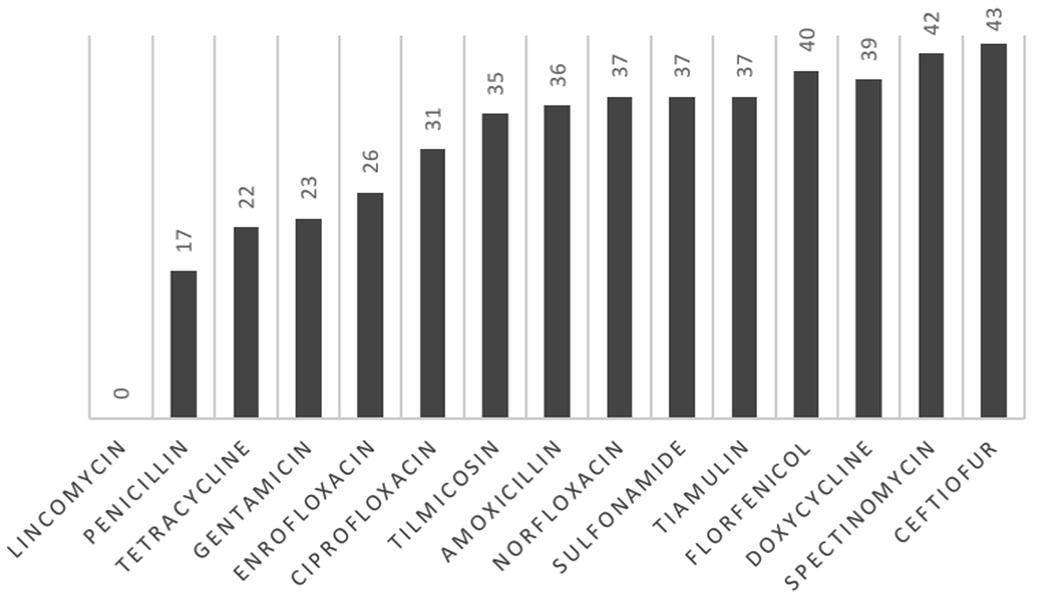ABSTRACT:
The bacterium Pasteurella multocida is a frequent cause of porcine respiratory disease complex in finishing pigs. Historically, the bacterium is recognized as an opportunistic agent, causing secondary bacterial pneumonia in pigs. Several Brazilian reports have suggested the ability of P. multocida to cause primary pulmonary infection that leads to the death of finishing pigs prior to slaughter. The aim of this study was to evaluate anatomopathological pulmonary findings associated with P. multocida infection that were obtained from animals with clinical respiratory disease and from animals at slaughter. Twenty-five lung samples from 14 herds of finishing pigs with acute clinical respiratory disease and 19 lungs collected at slaughter from a different set of 14 herds were studied. In all lung samples, bacterial isolation was performed, and only samples with pure P. multocida growth were included in the study. Gross and histopathological lesions were evaluated, as well as Influenza A, porcine circovirus type 2 (PCV2) and Mycoplasma hyopneumoniae co-infections. Pleuritis and pericarditis were more often observed in clinical samples (P<0.05). Moreover, there was a numerical trend indicating that pericarditis, lymphadenomegaly and cavity exudates were more often present in clinical samples. Thirteen lung samples were negative to M. hyopneumoniae, Influenza A and PCV2 by immunohistochemistry (IHC), with only P. multocida identified. In these cases, gross lesions such as pleuritis, pericarditis and lymphadenomegaly were always present, and no histologic lesions indicative of other agents such as Actinobacillus pleuropneumoniae, Actinobacillus suis or Haemophilus parasuis were observed. These findings suggest the ability of some P. multocida isolates to cause primary respiratory and systemic infection. However, in this study, it was not possible to determine specific virulence markers to explain these findings.
INDEX TERMS:
Pasteurella multocida; pneumonia; swine; pasteurellosis; pleuropneumonia; fibrin

 Thumbnail
Thumbnail
 Thumbnail
Thumbnail
 Thumbnail
Thumbnail
 Thumbnail
Thumbnail



